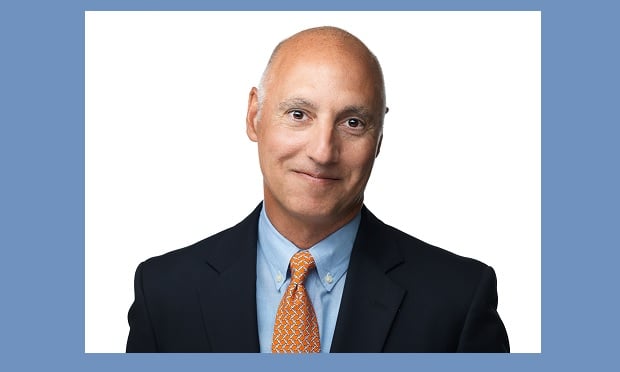What initiatives do you have planned for 2011?
Leonard C. Brevik: First, we will continue the successful, focused initiatives that provide our members with what they want and need. This includes our legislative and industry advocacy, which continues to score wins. We will continue to enhance our award-winning PIA branding program, which provides top-flight advertising and branding for our members. The PIA Partnership, our council of senior insurance executives, will come out with another of its annual deliverables to assist our member agencies and their carrier partners. And PIA will continue the leadership role it assumed in 2010 helping agents embrace social media as a means of growing their business.
In 2011, we will roll out PIAPRO, a PIA member-owned captive insurance company, to provide a stable source of errors and omissions coverage exclusively to PIA members. After years of being buffeted by carriers entering and exiting markets, PIA decided to take charge of its own destiny, for the exclusive benefit of PIA members.
Ken A. Crerar: The Council has been involved in several exciting initiatives in 2010 which will continue in 2011. Our international program has evolved over the years as our business has expanded internationally. Today, nearly 20 percent of our overall membership is headquartered outside the U.S. In an effort to create new market opportunities on the global stage and to assist members in handling international business, this summer, The Council launched the Council Global Connection–the branding of The Council's network of firms around the world. Council Global Connection will help our members raise their visibility, facilitate the flow of business and demonstrate global capabilities to clients.
Our top priorities have always been to eliminate protectionist regulations and laws that inhibit competition. In 2011, we'll continue our advocacy on the implementation of surplus lines, the renewed interest in NARAB II and efficient producer licensing.
In addition, The Council will continue to work with LexisNexis as the Insurance Exchange launches into full production in 2011. The LexisNexis Insurance Exchange is a single-entry collaborative insurance placement platform designed to improve and enhance the flow of application data and documents between agents/brokers and wholesalers/carriers. The Exchange is the result of a partnership formed through The Council, representing the agent/broker community, and LexisNexis Insurance Solutions, to streamline the submissions process and provide increased levels of transparency, efficiency and productivity to agents, brokers, wholesalers and carriers. The Exchange is open to all and is an industry effort. We look forward to building on these exciting endeavors in 2011.
Robert Rusbuldt: IIABA will launch the Consumer Agent Portal (CAP) initiative with independent agency company investors in the first quarter of 2011. CAP provides independent agencies with the ability to compete on the Internet for personal lines business as never before. We also will partner with The Institutes to offer new online courses on the Virtual University, and Big I Advantage will enhance product and service offerings to Big I member agencies. Trusted Choice goes all in 2011, meaning all Big I member agencies who sign the licensing agreement/consumer pledge of performance will be Trusted Choice agencies, so we will have close to 23,000 Trusted Choice agencies by the end of the year. The combination of CAP with the increased presence of Trusted Choice will create more marketplace opportunities for independent agencies.
In the advocacy area, in late 2010/early 2011 we will push for extension of the current tax rates for Subchapter S corporations and a fair rather than onerous estate tax. In 2011 we will call for passage of much-needed agent licensing reform (NARAB II), and a longer-term extension of the National Flood Insurance Program (NFIP), repeal and/or revision of the specific provisions in the healthcare reform legislation that are most detrimental to independent agencies and their customers, continue to oppose federal regulation of insurance or repeal of the McCarran-Ferguson Act for the property-casualty industry, and more. It will be a very busy 2011, and the new Congress may give the industry some opportunities to rectify onerous laws and push new initiatives.
What issues did your members face in 2010?
Rusbuldt: 2010 was consumed by health insurance reform, the soft market, agency compensation issues and financial services regulatory reform. The new healthcare law is putting pressure on agencies as some health insurance companies have cut agent commissions. The new taxes in the law, combined with the creation of state-based exchanges, the medical loss ratios and more create a triple whammy for independent agencies: as owners of businesses who must pay the new taxes and provide coverage for their employees, as consumers of health insurance themselves, and as health insurance sellers/advisors. The continuing commercial lines soft market in 2010 created pressure for many agencies and will continue to do so in much of 2011. Members will also need to continue to embrace technology as well as understand how to use social media to position themselves with the increasing number of consumers that can be reached through that avenue.
Brevik: Agents are never completely safe as long as Congress is in session. We saw examples of that time and again this past year. When the healthcare reform bill was first introduced, it contained a provision that would have actually banned licensed agents and brokers from selling health insurance policies through the new health insurance exchanges. Fortunately, agents got that language stripped out and replaced with a provision that guarantees that agents can be involved. It helped that a member of Congress (Rep. Charlie Melancon, D.-La.), a former agent and PIA member, led the fight to make that change.
Then, as Congress was about to consider financial regulatory reform, there was a chance that the insurance industry could have been swept up into federal regulation. At a meeting at the White House, I told the U.S. Treasury Dept. in no uncertain terms that agents oppose federal regulation and support state regulation of insurance. Federal regulation was not in the bill that passed.
As a federal insurance office (FIO) was about to be created, there was an 11th-hour attempt to change the FIO from an information office into a precursor for federal regulation. Agents and the NAIC beat that back. Language was inserted banning the office from acting as an insurance regulator.
The healthcare reform bill contained a provision mandating a broad expansion in IRS 1099 reporting requirements in an effort to help pay for the bill. This places an onerous burden on businesses of all sizes. It is especially burdensome to small businesses, which are the growth engine of the American economy. This provision throws sand into that engine. We're currently supporting a repeal of this provision.
Crerar: The Council worked hard to defend and preserve the role of commercial insurance brokers and the employer-based healthcare group benefit system during the 2009-2010 healthcare debate and spearheaded the effort to reform multi-state placements of surplus lines. As we approach 2011, our efforts will be focused on helping our members adjust to the new regulations born from these issues.
Other challenges in 2010 included the prolonged soft market, which is likely to bleed into 2011. Coupled with continuing low demand for insurance as a result of economic conditions, the soft market will continue to dampen revenues and make organic growth difficult.
Many firms will be faced with difficult decisions on whether to buy or sell in 2011. On the other hand, high-performing firms that learned to cut costs and continue to invest in firm and talent will be well positioned for growth in the coming years.
How do you recruit young agents to join?
Crerar: Council memberships are at the organizational, not individual level, but in 2010 we launched a major program aimed at attracting young people to the industry. So far this year, we have sponsored an important study on the financial benefits of hiring young producers; published an industry promotion and recruitment booklet and sent it to more than 400 colleges and university career centers; created a how-to manual on creating and implementing an effective internship program; and through FAME–our educational foundation–we have a robust need-based scholarship program for juniors and seniors pursuing degrees in risk management and insurance.
Since 2006, FAME has awarded 64 scholarships of $5,000 each. The Council is working on everything from basic business training course options to leadership development all designed for commercial insurance brokerage firms.
Rusbuldt: Attracting and retaining talent in the insurance industry is critical. IIABA is working to bring more young talent into the agency system by supporting InVEST, a 501(c)(3) organization dedicated to educating and training the next generation of insurance producers and employees.
InVEST provides education, internships and more for high school and community college students, preparing them for careers in the insurance industry immediately upon graduation.
What is the No. 1 concern of your members?
Brevik: Without a doubt, it's the economy. The impact of the lingering recession continues to create a challenging environment for many agencies. Based on what we are hearing from our members, conditions in much of the country remain very tough, although there are some areas where things have improved marginally since the depths of the financial crisis. Overall, it's turning out to be a long slog.
What can be most frustrating is that many of the forces contributing to these tough economic conditions can be beyond the control of small businesses. The availability of business credit is a good example. When banks pull back from lending for reasons having nothing to do with the creditworthiness of individual businesses, growth can grind to a halt.
Where agents can have a positive impact is through advocacy, trying to improve the general business climate. When businesses are forced to deal with unnecessary government regulation, high taxes and frivolous litigation, they tend not to invest or expand. When that happens, it reduces the need for insurance products which, in turn, has a negative impact on independent insurance agencies. It's a downward spiral. The way to reverse that spiral is to remove the needless regulations that put small business in a choke hold. What is needed above all is a stable regulatory environment that allows businesses to plan and invest. For the economy to improve, everyone has to do his or her part to bring about a better business environment.
The media tends to focus exclusively on Capitol Hill in Washington, D.C., but as a state-regulated industry it is critical that we do not forget the impact of our state legislatures. In the recent election, 37 governorships were on the ballot and as a result there are many new state insurance commissioners. This is important because state legislatures and state insurance departments have a more immediate impact on our industry.
Rusbuldt: The No. 1 concern of my members at this time is enhancing agency revenue and increasing independent agents' marketshare in personal lines insurance. The prolonged and continuing soft market is hammering agency revenue, particularly in commercial lines dominant agencies. As renewals continue to come in with lower premiums, and contingencies/supplemental compensation falls as agencies are unable to meet volume requirements, agencies are feeling tremendous pressure to enhance their revenue.
Crerar: There is a tremendous amount of anxiety and uncertainty surrounding healthcare reform and as a result, we are trying to stay as engaged as possible in the implementation process going forward. Implementation on every level of the health care reform law matters to us–MLR rules, the broker role in exchanges, grandfathered plans, mini-meds, market reforms–you name it. Our No. 1 concern continues to be protecting the role of the commercial insurance broker and the employer-based healthcare group benefit system as implementation progresses over the next 5 to 10 years. We continue to work with HHS officials on these efforts.
Other challenges include a difficult economy and an ongoing soft market; competition with other agent/brokers in the commercial marketplace; and identifying and training the next generation of leaders.
November's midterm elections will undoubtedly have great consequences, not only for the nation but for the member firms of The Council, and we're going to have many new members of Congress to get to know.
What are your primary concerns coming from pending or proposed legislation or regulation?
Crerar: The pendulum swings back and forth with regulatory actions and since the economic crisis, it has swung to one side. We need to make sure regulation is effective but not overly burdensome. The evolving trend of setting international standards for the industry is also a concern. While some uniformity may be desirable, i.e., solvency or a uniform definition of intermediary, we're concerned about overregulation driving up the cost of insurance for all–buyers, brokers and carriers. Regulators around the globe are rushing to fill gaps in regulation on the heels of the financial crisis without much thought to what is needed and how to regulate effectively.
A related issue is the rising cost of compliance from lack of uniformity in state laws and regulations and the increasing complexity of placing multi-national business.
Brevik: Despite the recent changes in the makeup of Congress, we cannot let our defenses down. There always will be those who say they support us, but then turn around and back such ideas as optional federal charters, which we oppose.
The change in the makeup of Congress will no doubt present opportunities for agents to proactively advance positive legislative ideas rather than always playing defense, but we must not lose sight of the fact that one election cannot bring about a total change in the political culture in Washington, D.C. This will be a long struggle.
PIA has been engaged in a holding action to stave off federal encroachment into our industry. This effort, in which many others are also involved, has been largely successful. We are hopeful that the new makeup of Congress will create an environment that is less hospitable to proposals such as the OFC, which its supporters have admitted is intended to be a first step to federal regulation of insurance.
PIA is an activist, aggressive, grassroots association that always stands up in defense of the interests of its members. We combine an unparalleled depth of insurance knowledge with the courage to take a strong stand and fight when we know we are right. That will never change.
Rusbuldt: At this point our primary concerns come from the implementation of legislation that has recently been passed, not proposed legislation. Both healthcare reform and financial services regulatory reform have tremendous impact on our members as both small business owners and insurance agents/brokers. We will continue to be actively involved with both federal and state regulators as the new health care reform components are put in place (MLR definitions, exchanges, etc.). Additionally, while Dodd-Frank largely focused on the banking and securities sectors, there are provisions that impact the insurance market such as surplus lines reform, the establishment of an informational office at the federal level with no regulatory authority, systemic risk oversight of very large insurers and more. The Big I will work to ensure that these provisions are properly implemented and that regulators don't exceed the authority laid out in statute. We also expect that there will be continued discussion of the so-called optional federal charter (federal regulation of insurance) at some point in the next Congress as well.
How has your membership changed since you have been involved in the organization?
Brevik: PIA's membership has become more involved in legislative advocacy. This can be attributed to the increasing threats our members face whenever Congress takes ill-advised actions, or fails to act appropriately. We have expanded our grassroots advocacy and our members have responded enthusiastically. For example, at one point in the past year when lawmakers had let the National Flood Insurance Program slip into expired status and a renewal vote was imminent, PIA members generated more than 1,000 letters to Congress in 24 hours.
We've also noticed that there has been an uptick in recent years in start-up agencies joining PIA. This is an encouraging trend, as it shows that new agents are joining our industry despite the difficult economic times. There also have been a number of former captive agents who have made the switch to being independent agents, which is also a positive trend. Whenever new people are deciding to become independent agents and are joining your association, it bodes well for the future.
Crerar: Members are becoming much more sophisticated than ever before. There is great demand for highly skilled professionals. Our job is to provide the color commentary and resources to help our member firms prepare their clients to identify, avoid and cover risk and prosper in uncertain times.
Rusbuldt: Over the last two decades agencies have gotten bigger, with more diversification. Employee benefits are now a big part of many agencies and technology has had some profound impacts on agencies. Agents are more highly educated, agency workflows have improved and agencies are more efficient. De novo agencies are springing up around the country in unprecedented numbers, a relatively new phenomenon that is creating new opportunities for producers, companies and consumers. Despite some challenges, the independent agency system continues to thrive.
Want to continue reading?
Become a Free PropertyCasualty360 Digital Reader
Your access to unlimited PropertyCasualty360 content isn’t changing.
Once you are an ALM digital member, you’ll receive:
- Breaking insurance news and analysis, on-site and via our newsletters and custom alerts
- Weekly Insurance Speak podcast featuring exclusive interviews with industry leaders
- Educational webcasts, white papers, and ebooks from industry thought leaders
- Critical converage of the employee benefits and financial advisory markets on our other ALM sites, BenefitsPRO and ThinkAdvisor
Already have an account? Sign In Now
© 2024 ALM Global, LLC, All Rights Reserved. Request academic re-use from www.copyright.com. All other uses, submit a request to [email protected]. For more information visit Asset & Logo Licensing.








